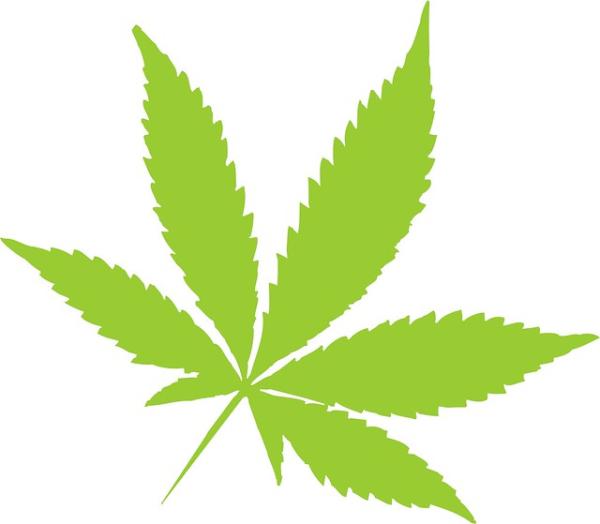The FDA met last week in the first hearing to decide the regulatory fate of the cannabinoid CBD; you know the marijuana component that has no or little psychoactive effect. At the most basic of levels, a drug is a chemical. It could be an element like oxygen, or a compound like salt, or a complex molecule like aspirin or insulin. Let’s stay with oxygen for a moment. If I want to go SCUBA diving, I need only show my certification (and in many resorts that is not necessarily a requirement), and I get a tank containing 20% oxygen. But in healthcare, where we use higher concentrations (dosages) of oxygen, it is a prescription drug.
“FDA regulations define the term drug, in part, by referenceto its intended use, as ‘articles intended for use in the diagnosis, cure, mitigation, treatment, or prevention of disease” and “articles (other than food) intended to affect the structure or any function of the body of man or other animals.’” [Emphasis added]
Let’s unpack the FDA’s definition a bit.
- To be a drug, you cannot be food. Oddly enough, the FDA definition of food is somewhat circular, here it is. “The term "food" means (1) articles used for food or drink for man or other animals, (2) chewing gum, and (3) articles used for components of any such article.” So, in the words of Supreme Court Justice Potter describing pornography, “I know it when I see it.”
- Drugs are linked to diseases. There has to be a recognized disease first; presumably, one identified by a recognized International Classification of Disease (ICD). Heart failure is a disease; wrinkles are not. [1]
- Finally, and perhaps most important, a drug is defined by its intended, not actual use. Consider Vitamin D. When you have rickets, a weakening of the bone most frequently affecting children, Vitamin D is a drug. When you get it in your milk, to prevent rickets, it’s a food additive, and when you take it because your friend said it was good for your general health, it’s a supplement. One chemical, categorized in three different regulatory ways. That is why all the supplements come with disclaimers about the manufacturer’s intentions.
Physicians who prescribe a drug for a reason different than its intended use are said to be prescribing the medication off-label. Supplements are the ultimate in off-label use, available to everyone. They have no intended use at all.
Where does this leave CBD?
Cannabidiol or CBD is one of over a hundred cannabinoids and is currently considered a medication (Epidiolex), used for the treatment of Dravet syndrome and Lennox-Gastaut syndrome (LGS), rare forms of epilepsy that begin in infancy and are often intractable to conventional medications. It has FDA approval as a drug being shown both safe and efficacious in the treatment of a specific disease.
Drugs are not allowed in supplements or food, so CBD cannot without regulatory gymnastics be considered either. A small loophole would allow supplements or foods containing CBD sold before Epidiolex's approval to continue to be marketed, as was done for Vitamin D in milk, but the FDA has indicated that they will not allow it. CBD is prohibited for animals raised as food. As for our pets, CBD is considered an off-label use prescribed solely by veterinarians.
Goop, a self-recognized authority, suggests a CBD oil grown on ethical farms [2] in Colorado would allow you to “Experience the purest sources of cannabinoids, antioxidants, and neuroprotectants that help protect and rebalance your body’s central nervous system.”
Neuroprotectants applies to no specific disease at all, nor does rebalancing. CBD may be used in cosmetics as long as it has no safety issues. But, CBD has been found during the clinical trials of Epidiolex to cause liver dysfunction at high doses, so CBD use in cosmetics remains problematic.
You would think that under these circumstances the question has been answered. You would be wrong. You could provide CBD in lower dosages as an over-the-counter (OTC) product, as we have for proton pump inhibitors, the medications that we take for “heartburn” or reflux. Of course, there are consequences to that classification. Currently, only prescription drugs are covered under health insurance plans, while OTC’s are the ultimate out-of-pocket medication.
Last week’s FDA hearing on CBD was more focused on regulating the means of manufacture and the composition and standards of the final product. But the quiet battle is two-fold. First, how may this drug be given as something other than a drug; there is a lot of supplement and cosmetic money riding on those decisions. Second, it reflects the continued schism between the states and the federal government in how cannabis is treated. The federal power to regulate drugs lies within the Commerce Clause of the Constitution, “To regulate commerce with foreign nations, and among the several states, and with the Indian tribes.” The action by the States has been treated with a wink and a nod, but that seems to be changing.
[1] To be accurate wrinkles can be coded as ICD-10: R23.4, a change in skin texture, but this is a symptom, not a disease itself.
[2] It is unclear to me what constitutes an ethical farm, perhaps it is an expansive moral version of sustainable, a concept which I at least understand.




